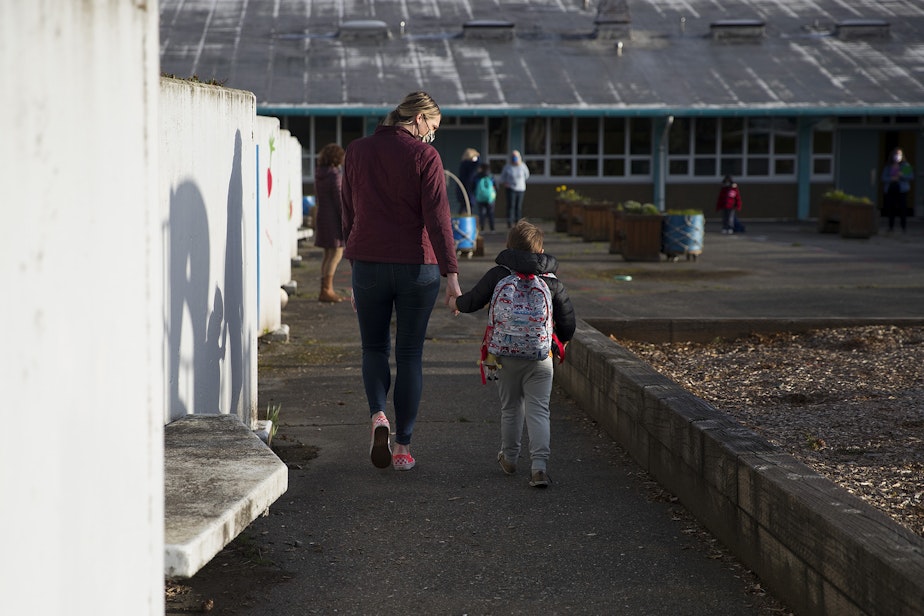Should highly capable students go to different schools? Seattle changes its approach

Seattle Public Schools is phasing out its highly capable cohort (HCC) model, where advanced learners go to a handful of elementary, middle, and high schools in the district with curriculum that is one or two years ahead of their grade depending on the subject.
Instead, starting next school year, the district’s replacement, called the “highly capable neighborhood model,” will be available at every school. Under this “whole classroom” approach, teachers will be tasked with personalizing lesson plans for individual students.
"Differentiation in a classroom is sort of seen as the most sophisticated style of teaching," said Claire Bryan, who reported on changes to SPS' highly capable program for The Seattle Times.
Bryan said teachers are getting additional professional development and training about differentiation in classrooms, "but they're not necessarily getting extra adults in the room to help out with this. So some do really feel nervous about this and feel like it's not the best option, or it's not going to set them up to succeed," she said.
Seattle Public Schools said that the current model, where kids are separated, raises equity issues, because it serves a larger share of white and Asian students.
The percentage of Latino and Black students in the program has grown since the district started universal assessments, but still lags behind district demographics as a whole.
Sponsored
Kristina Collins, the executive director of the Robinson Center at the University of Washington, studies highly capable programs. Collins said teachers will be creating individualized lesson plans to challenge students, matching their abilities — all at schools in their community. They no longer have to drive or bus across town.
"We're trying to go away from the static labels and to a dynamic learning environment," Collins said. "There are students that we miss, students that fall in the cracks on either side of that spectrum."
Some parents of advanced learners are worried about the loss of highly capable schools and, with the district moving to bring highly capable cohort students back to mainstream classrooms, they question whether that support will materialize under the “neighborhood model.”
"Many parents are very skeptical of the neighborhood delivery model because they haven't seen it," said Jie Lei, a board member of Cascadia Elementary PTA, a cohort school.
"Can [SPS] show us that it is quantifiably a good replacement for the cohort model?" she asked.
Sponsored
Other parents argue the district has been halfhearted in its efforts to diversify the highly capable cohorts and is prematurely abandoning the program, to the detriment of students who need to be challenged in math and reading and can’t afford alternatives.
Seattle Public Schools is currently in the process of sunsetting the highly capable cohort system and will fully shift to the neighborhood model in the 2027-28 school year.
Listen to Soundside’s full conversation with Claire Bryan and Jie Lei by clicking the play icon at the top of this story.





